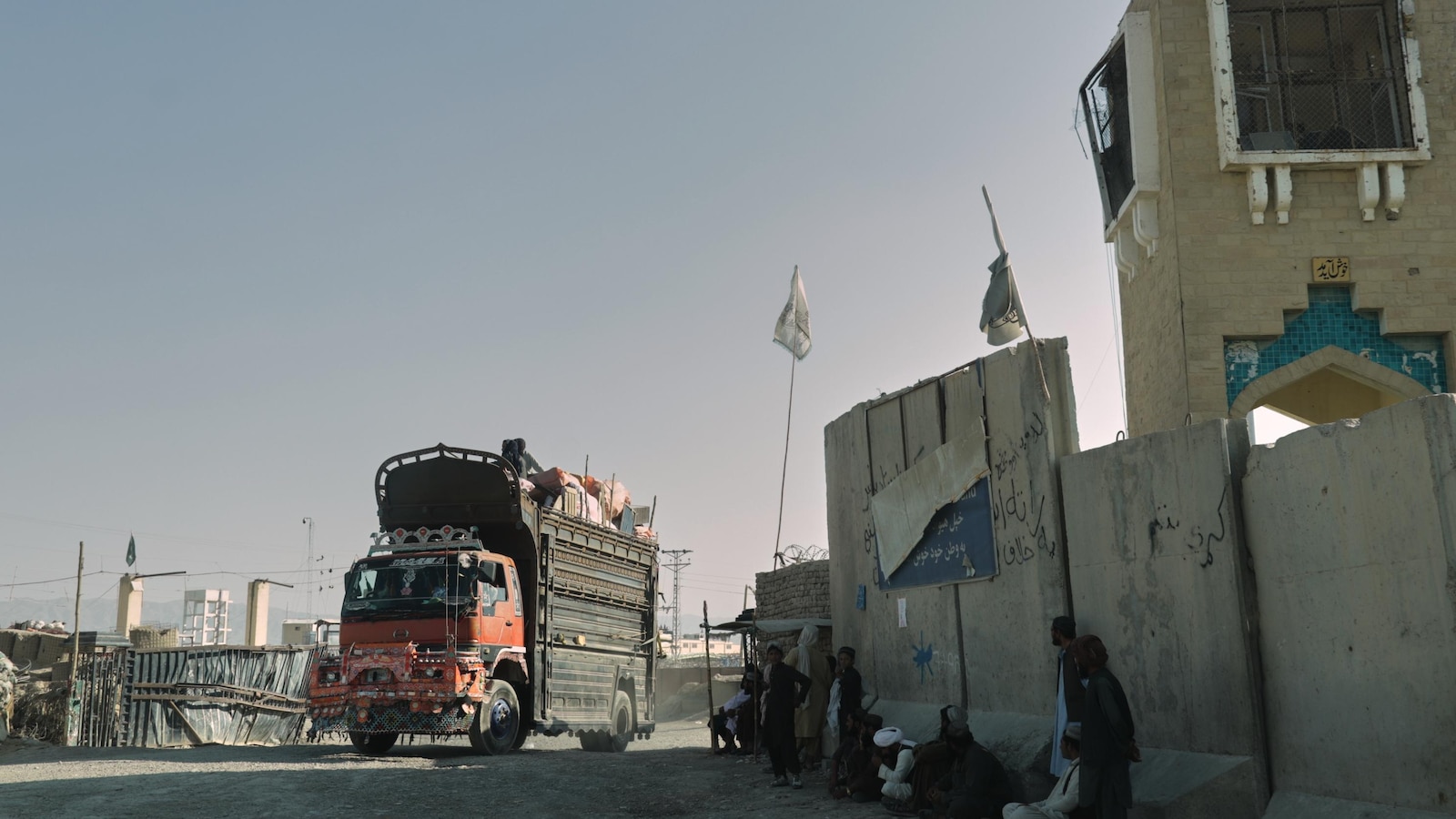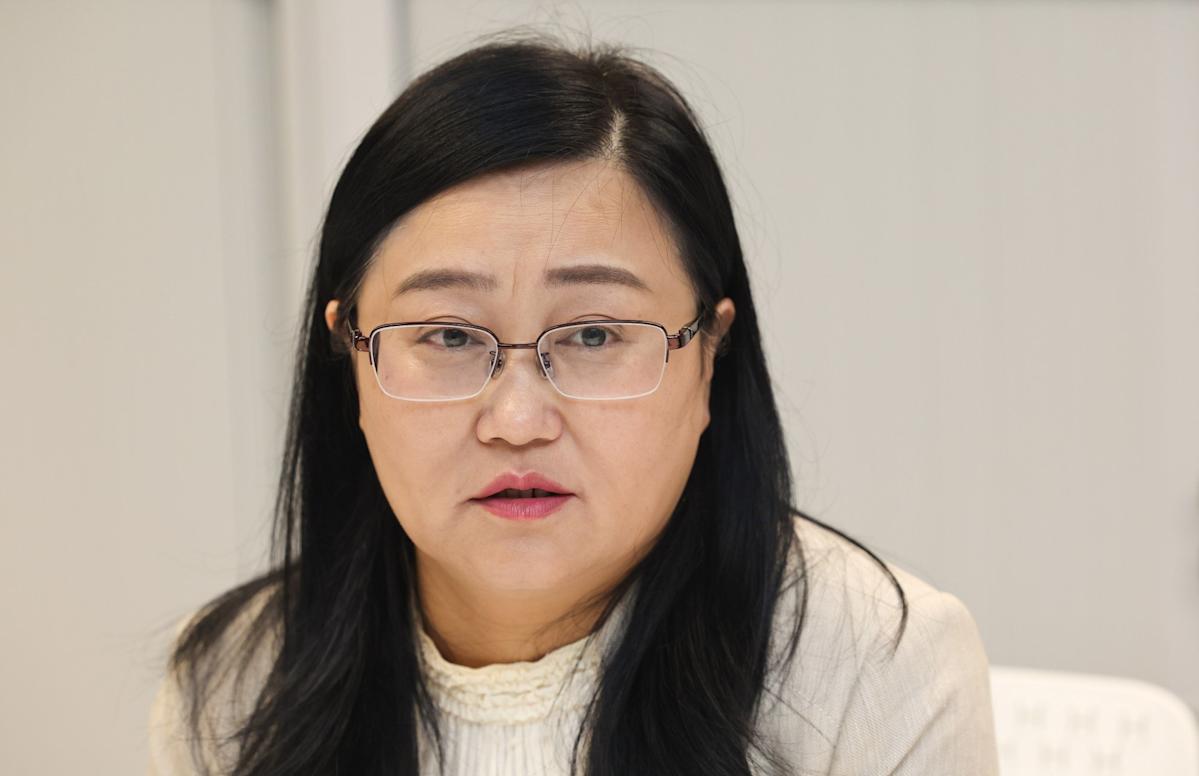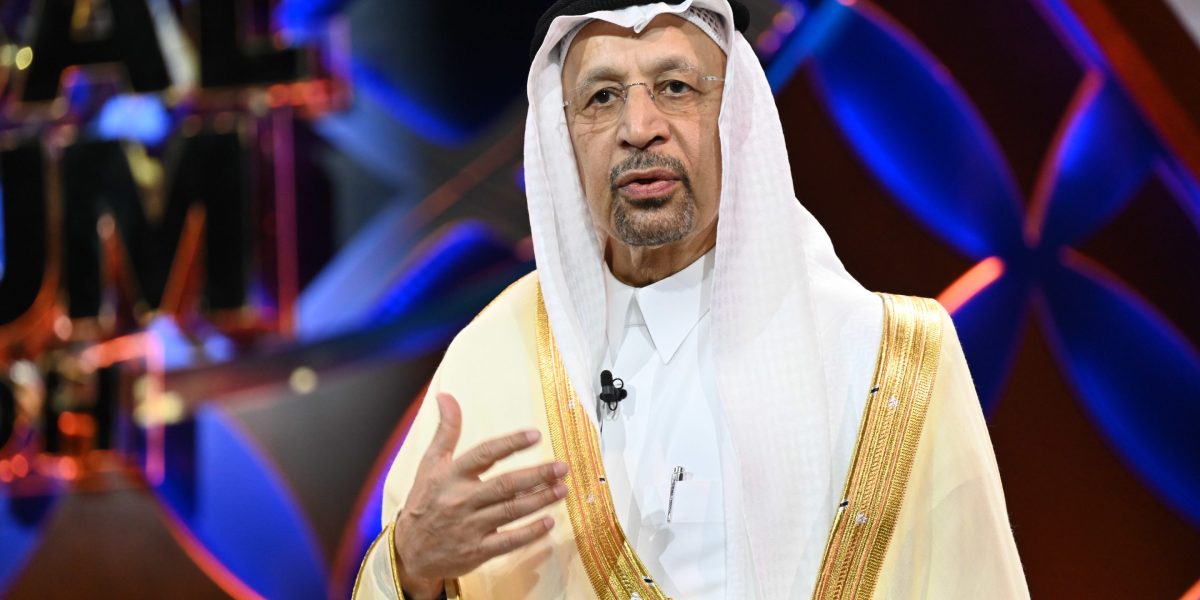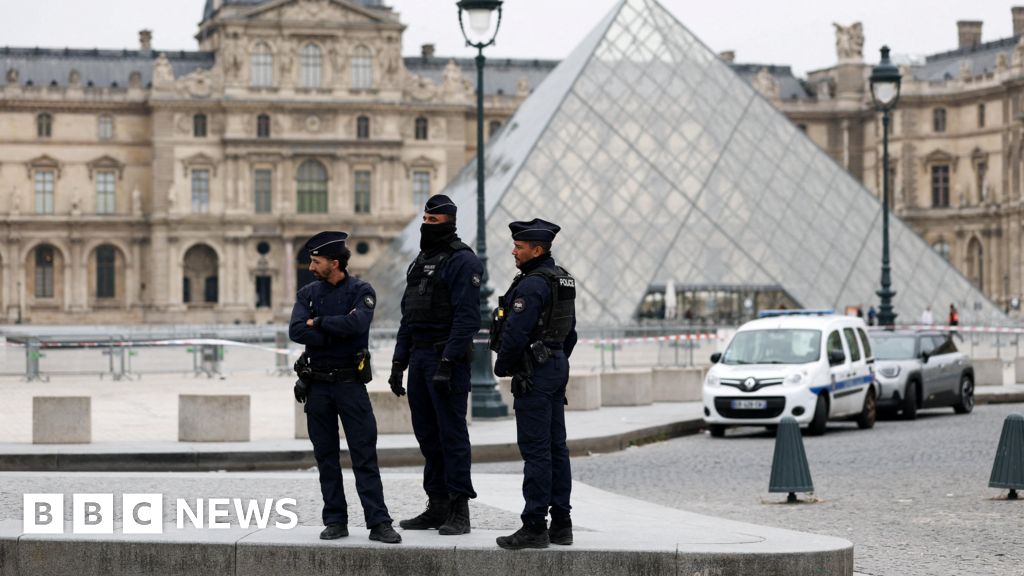- OpenAI’s Less-Flashy Rival Might Have a Better Business Model The Wall Street Journal
- OpenAI and Anthropic v app developers: tech’s Cronos syndrome The Economist
- OpenAI Bests Google in Race for Consumer AI Token Consumption PYMNTS.com
- Is OpenAI Becoming Google’s Biggest Threat? SSBCrack
- OpenAI ‘dominating’ consumer AI token consumption, Anthropic wins enterprise: Barclays (GOOG:NASDAQ) Seeking Alpha
Blog
-
OpenAI’s Less-Flashy Rival Might Have a Better Business Model – The Wall Street Journal
-

Trump says he will solve Afghanistan-Pakistan crisis ‘very quickly’ as peace talks enter second day
ISLAMABAD — U.S. President Donald Trump said Sunday he will solve the Afghanistan-Pakistan crisis “very quickly,” as peace talks between the warring neighbors entered a second day.
The two countries are embroiled in a bitter security row,…
Continue Reading
-

Stellerus uses satellites to visualise 3D wind data for weather forecasts, insurance risks
Hong Kong University of Science and Technology (HKUST) start-up Stellerus Technology aims to be the world’s first provider of satellite-enabled three-dimensional wind data to help wind power, transport and insurance firms boost revenues, cut costs and manage risks, according to its founders.
Stellerus, founded in 2023 by the university’s academics, would leverage China’s cost competitiveness in satellite manufacturing to make global 3D wind data collection economically viable, said Su Hui, the chairwoman and co-founder.
3D wind data – wind direction and speed and their changes with altitude – is crucial for improving weather forecasting, especially severe climate events.
Do you have questions about the biggest topics and trends from around the world? Get the answers with SCMP Knowledge, our new platform of curated content with explainers, FAQs, analyses and infographics brought to you by our award-winning team.
“After I came to Hong Kong, I realised the technology for implementing such a project in mainland China was quite developed and the cost would be much lower than overseas,” Su said. “In the US, such a satellite could cost US$100 million to build, compared with 20 million yuan [US$2.8 million] in China.”
Su Hui, the chairwoman and co-founder of Stellerus Technology. Photo: Edmond So alt=Su Hui, the chairwoman and co-founder of Stellerus Technology. Photo: Edmond So>
Su, a hydraulic expert, joined the HKUST’s department of civil and environmental engineering in 2022 as chair professor. She was formerly a principal scientist and weather programme manager at the Jet Propulsion Laboratory at Nasa.
By deploying advanced optical sensors, Stellerus could collect data and use artificial intelligence to analyse carbon dioxide, methane and water vapour in the atmosphere to calculate changes in wind direction and speed, she said.
“Such detailed data is lacking for meteorological observation and analysis globally,” she said. “Various organisations, including Nasa, plan to embark on such a project, but none has been implemented so far due to the high cost of launching a satellite constellation.”
Nasa was testing laser technology for developing space-based 3D wind measurements, according to its website. It was also collaborating with the US National Oceanic and Atmospheric Administration to develop advanced remote weather sensing instruments that can be flown aboard satellites to collect highly precise data to improve weather forecasting globally.
In August 2023, HKUST partnered with Chang Guang Satellite Technology – a Jilin government-backed firm and China’s first commercial remote sensing satellite company – to become Hong Kong’s first higher education institution to launch an Earth environmental satellite.
Continue Reading
-

Saudi Arabia’s minister of investment on Vision 2030 and the world’s search for reliable partners
At the Fortune Global Forum in Riyadh, Saudi Arabia’s Minister of Investment, Khalid A. Al-Falih, described the breakthroughs occurring under Vision 2030, the kingdom’s economic transformation plan that is roughly nine years old. Describing 2025 as a “pivotal moment,” the minister argued that “the very foundations of global business are being shaken, in a way, and being rewritten before our own eyes.” He described “tectonic shifts” in geopolitics, global trade, technology, supply chains, energy, even demographics, “all converging to reshape how companies and countries think and operate, how they compete and create value for their stakeholders.”
In conversation with Fortune Editor-in-Chief Alyson Shontell, as well as Alphabet President and Chief Investment Officer Ruth Porat and Barclays Group CEO C.S. Venkatakrishnan, Al-Falih described what he sees as a world where “everyone is concerned” about supply chains still “pushed to the limit,” more than five years after the onset of the pandemic. “Supply chain resilience for both companies and nations and policy makers and governments is dominant,” he said, also citing digital disruption as a key inflection point.
“Underneath this,” Minister Al-Falih told Shontell, there’s a human concern he sees driving leaders’ actions today: “I believe people are looking for partners with whom they can trust who are not short-term, transactional.” The minister framed Saudi Arabia’s Vision 2030 not simply as a national reform agenda, but as a blueprint for global collaboration rooted in mutual resilience — the belief that long-term prosperity depends on shared growth across nations and industries.
“Interdependence remains the defining truth of our time,” Minister Al-Falih said in his opening remarks, urging businesses to embrace cross-border partnerships rather than retreat behind protectionist walls. He described the Kingdom as a “platform for global growth,” emphasizing that resilience in the modern economy requires openness, innovation, and integration with like-minded partners. His message was clear: Saudi Arabia aims to be the world’s most reliable investment destination for companies navigating geopolitical fractures, shifting supply chains, and the green transition.
A decade of transformation
Since its launch in 2016 under Crown Prince Mohammed bin Salman, Vision 2030 has redrawn Saudi Arabia’s economic map. The minister highlighted that non-oil sectors now account for 56% of the national GDP, up from 40% at the program’s inception. Unemployment has dropped below 7% while women’s participation in the labor force has more than doubled to 37% (the latest World Bank data shows 34%), far surpassing early reform targets.
Saudi Arabia’s capital markets, now ranked among the world’s top 10, have become a magnet for international investors, highlighted by the blockbuster IPO of national champion oil firm Saudi Aramco in 2019, now ranked among the top 10 most valuable companies in the world—and the most profitable company ever as of 2023. Multinational companies are establishing regional headquarters in Riyadh at an accelerated pace, Minister Al-Falih noted: 675 as of this year, already exceeding Vision 2030’s target of 500 by 2030. The minister praised these developments as proof that structural change, once theoretical, is now an engine of global competitiveness.
From oil superpower to clean energy leader
Minister Al-Falih also repositioned Saudi Arabia’s traditional role in global energy markets. Long a linchpin of oil and gas supply, the Kingdom now seeks to be just as dominant in renewables — from solar and wind to green hydrogen. “Our ambition is to enable the industries of the future to flourish,” he said, pointing to plans that leverage both the Kingdom’s vast natural resources and rapidly growing renewable portfolio.
He underscored that Saudi Arabia’s competitive edge — low energy costs, geographic centrality, and expanding data infrastructure — makes it ideal for energy-intensive industries, from AI and cloud computing to advanced manufacturing. Riyadh, he announced, is already emerging as a leading global hub for data centers, gaming, and e-sports.
In his closing remarks, Minister Al-Falih invited global companies to “discover for themselves” the ambition and capacity driving Saudi Arabia’s transformation. The nation’s investment strategy, he argued, rests on three pillars — competitiveness, connectivity, and capability — each supported by world-class infrastructure and regulatory modernization.
Saudi Arabia’s evolving identity as both a reformer and a reliable partner resonates far beyond the Gulf. In an era when multinationals are diversifying away from single-market dependencies, Minister Al-Falih’s remarks made clear that Riyadh wants to anchor that shift — offering predictability, efficiency, and partnership in a volatile world.
Continue Reading
-

Act Now — Microsoft Issues Emergency Windows Update As Attacks Begin
Windows Server is under attack, act now.
SOPA Images/LightRocket via Getty Images
Updated October 26 with more technical information regarding the latest Microsoft Windows emergency security update addressing CVE-2025-59287, a critical…
Continue Reading
-

Internet Data Caps Explained: Avoid Extra Charges and Make the Most of Your Internet Plan
Did you sign up for an unlimited internet plan, hoping you’ll never have to worry about data limits anymore? Well, in many cases, these unlimited plans come with restrictions behind fair use policies. That can make things difficult, especially if…
Continue Reading
-
Trump says will get Pak-Afghan conflict ‘solved very quickly’ – Dawn
- Trump says will get Pak-Afghan conflict ‘solved very quickly’ Dawn
- Great people: Trump’s big praise for Munir, Sharif, and an Afghanistan mention India Today
- Trump Says He Will Soon Resolve Afghanistan–Pakistan Tensions TOLOnews
- Trump says…
Continue Reading
-

Two arrested over theft of jewels at Louvre, French media report
Two suspects have been arrested over the theft of precious crown jewels from Paris’s Louvre museum, French media say.
According to Le Parisien newspaper, the men were originally from the Parisian suburb of Seine-Saint-Denis, and one was preparing…
Continue Reading
-

Internet Data Caps Explained: Avoid Extra Charges and Make the Most of Your Internet Plan
Did you sign up for an unlimited internet plan, hoping you’ll never have to worry about data limits anymore? Well, in many cases, these unlimited plans come with restrictions behind fair use policies. That can make things difficult, especially if…
Continue Reading
-
Israeli military says it conducted 'targeted strike' in central Gaza – Reuters
- Israeli military says it conducted ‘targeted strike’ in central Gaza Reuters
- Has the Gaza ceasefire been broken? Al Jazeera
- Israeli army kills 2 Palestinians in Gaza, breaching agreed truce again TRT World
- Several said injured in car blast in…
Continue Reading